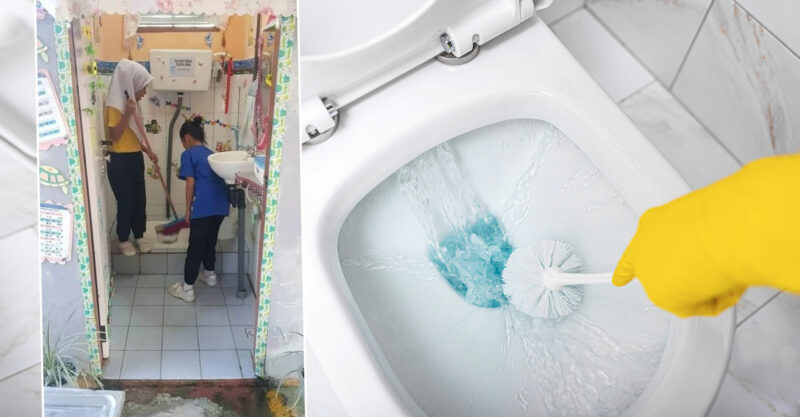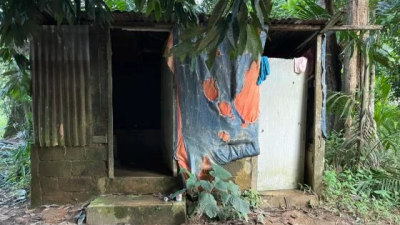
Arriving early at SMK Permata last Friday morning, I was ushered by teacher Bhavani into a hall full of Form 4 and Form 5 students, with boys neatly seated on one side, and girls on the other. After being introduced to them, thus began my event as a guest motivational and inspirational speaker to these young minds.
I surveyed with questions like “What will you do after your SPM exams?”, “Do you know what to do?”, and “Who influenced you, and what are your existing skill sets?” After they had answered these questions, I started my session on “Why must a student focus in life”, a topic I thought was most critical for the 5th Formers. I selected six students to appear on stage and was most impressed with their answers. Many of the students planned to pursue careers in business, with emphasis on their good language and people skills being their motivating factors.
I then asked, “How many of you make your beds in the morning?” A few acknowledged while the majority stayed silent. I then moved on to my favourite topic with the question “Who among you washes the toilet at home? Do you leave the toilet clean for the next person?” There was pin-drop silence among my audience.
Why have the sad and shameful conditions of our school toilets remained the same? From my school days till today, government school toilets have been an issue of horror, shame and disgust. The current levels of health hazards placed by their conditions are just unimaginable. The issue of toilets is what I want to emphasise among my readers.
1. Ignorance: The way the school toilet issue has been handled all these years is similar to ignoring an elephant in the room. This is an issue that has been discussed repeatedly in forums either via online media or letters to the editor, among all parents in the Parent Teacher Association (PTA / PIBG), but never in our Parliament. The Minister of Education (MOE) must address this matter as it is of grave concern towards our children’s well-being and health, as well as holding up the status of an educational institution. Such ignorance is inexcusable, and we see this not only within the school toilets, but also several eateries and public lavatories in almost every part of the country. If we do not educate our children from young on how to care for the cleanliness of the toilet at home, it is for certain they will not have this understanding be it in school or anywhere else.
2. Early Education: Japanese children are often taught about cleanliness and hygiene in preschool and early elementary school. The MOE should look upon the Japanese concept and make it compulsory to ensure every child is trained to keep the toilet and surroundings clean, starting from preschool and continuing till the child leaves school. Every school principal must be held responsible for the cleanliness of the toilets, ensure that the cleaners are doing their job well, and the government must allocate a proper budget to every school to ensure that the equipment to maintain the cleanliness of the toilets is in good condition.
3. Demonstrations: Teachers and parents often demonstrate proper toilet cleaning and hygiene practices. Every teacher must be trained in this area of imparting and training every child in this benevolent practice.
4. Use of Visual Aids: There must be more materials like posters, illustrations, and educational materials used to show children the proper way to clean lavatories and maintain cleanliness. This must be done in all languages so that the vernacular schools too are included in this exercise.
5. Parent Teachers Association (PTA / PIBG): This committee must play a role not just in educational excellence, but hygiene awareness, too. They must adopt the toilets and ensure their children are mandated with a class duty roster to clean the toilets and the school compound. Cooperation and support among the principal, teachers and parents is vital in this issue. There is nothing wrong with our children learning to keep toilets clean or pick up rubbish be it at home and in school, or anywhere else. Cleanliness is a habit that everyone should emulate
6. Role-Playing: Role-playing games or activities are used to help children understand and practise proper toilet cleaning and hygiene. This must start in kindergartens and nurseries. Each child must be taught about cleanliness and hygiene, and their parents should be included in the role-play activity as well as ensuring that the habit is continued at home.
7. Parents: Parents are the first teachers of any child. Whilst teaching ABC and 123, teach toilet cleanliness and hygiene, too. From the age of three years, teach them easy household chores in a fun manner, and include proper toilet usage and its upkeep. The child becomes either a hero or a zero from home.
8. Media: Catchy songs and rhymes can be used to make learning about cleanliness fun and memorable. The radio, TV, and social media must drum up the pathetic state of our toilets so that there will be greater “buy-in” from all the stakeholders i.e. government ministries, parents, teachers, headmasters, corporate companies, toiletry suppliers.
9. Reward Systems: Some schools or households use reward systems to encourage children to keep toilets and their surroundings clean. We can elect student bodies to be in charge of toilet and school cleanliness, and reward them with merits; the school can assign the members of the Art Club or students good in art to beautify the toilet and school surroundings; the MOE can launch a hygiene campaign or competition among schools in every state, and reward the winning school with perhaps a trophy and certain budget allocation for the school funds. Such projects could further encourage and instill awareness among the school folks on the importance of toilet hygiene.
10. Community Involvement: Children may be involved in community clean-up activities, i.e. gotong-royong projects in the school and their home areas, that may instill a sense of responsibility for their surroundings. Schools should organise field trips to visit the landfills, transfer stations, and recycling centres so that the children will be made to understand what is cleanliness and its importance.
11. Emphasis on Respect: Our Malaysian culture places a strong emphasis on respect, which must include respect for public spaces such as toilets. Children must be taught to respect and maintain the cleanliness of public properties such as playgrounds, parks, town halls and toilets, and even pick litter from wherever they are so that we can reduce spending RM 2 billion on waste management every year.
12. Consistent Reinforcement: Parents and teachers must consistently reinforce the importance of cleanliness and hygiene, ensuring that children understand and internalize these values. Several generations have passed either oblivious or ignorant about cleanliness and toilet upkeep. Despite our government, public and private sectors maintaining the high cost of keeping our toilets and environment clean, we are simply casting pearls to swine, as most Malaysians feel that ignoring hygiene provides jobs for janitors and waste workers.
During the last World Cup in Qatar, Japanese soccer fans delighted the world by picking up litter at the stadium after every match that Japan played in. We Malaysians should emulate such a habit and begin with our toilets, with the hope that this will instill and lead to the practising of good hygiene habits in our environment.
(Ravindran Raman Kutty is an active social worker.)
ADVERTISEMENT
ADVERTISEMENT


































